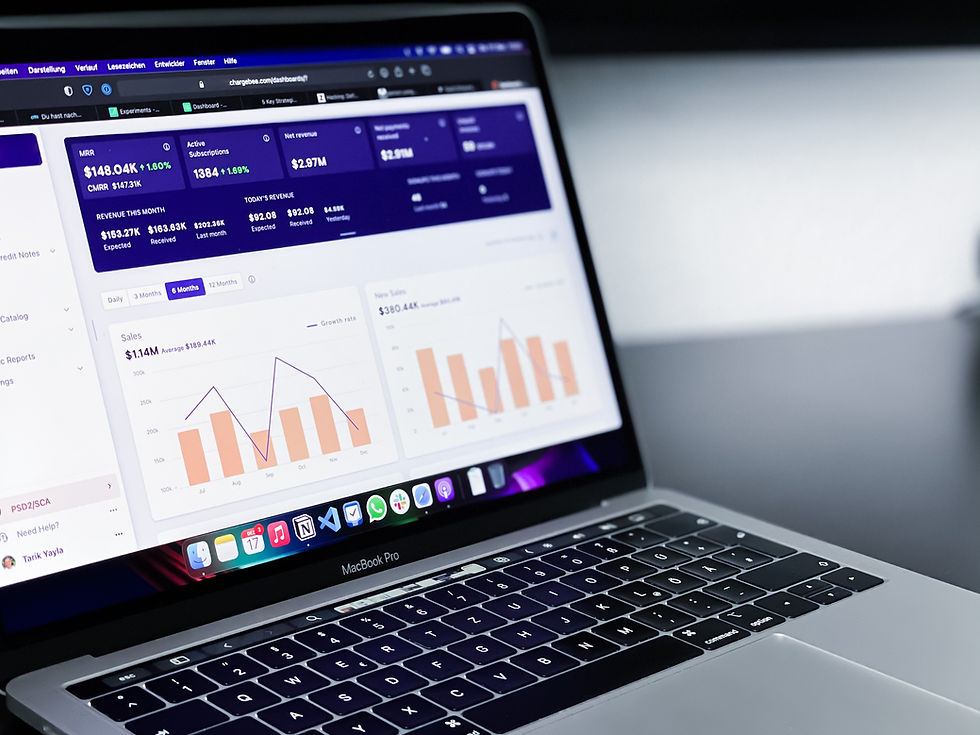Multi-Language Content Strategy for Diverse Travelers
- Planet Reach Media

- Jun 14
- 4 min read
In a destination as globally appealing as the Turks and Caicos Islands, it’s no surprise that travelers come from a variety of linguistic and cultural backgrounds. With visitors arriving from North America, Latin America, Europe, and the Caribbean, creating content in only one language — usually English — limits your ability to connect with potential guests.
By embracing a multi-language content strategy, tourism brands, resorts, and local businesses can expand their visibility, improve conversion rates, and create a more inclusive, personalized experience for diverse travelers.
Here’s why this approach matters — and how to get started.
Why Multi-Language Marketing Matters in the Turks and Caicos Islands
Although English is the official language, the Turks and Caicos Islands have deep connections to Spanish- and French-speaking communities due to regional migration, tourism flows, and cultural ties. Many visitors and residents speak:
Spanish (common among tourists from the Dominican Republic, Puerto Rico, and Latin America)
French (visitors from Quebec, Haiti, and parts of Europe)
English (from the U.S., Canada, the U.K., and the Caribbean)
Failing to address these linguistic groups can result in missed booking opportunities, higher bounce rates on your website, and a less inclusive guest experience.
Benefits of a Multi-Language Content Strategy
Reach More Travelers Online
Search engines serve results in users’ native language. If your content is only in English, you’re invisible to those searching in French or Spanish.
Improve Conversion Rates
Travelers are more likely to book, inquire, or purchase when they fully understand your offerings.
Enhance Guest Experience
Multilingual content shows cultural sensitivity and professionalism — especially for luxury and family travelers.
Gain a Competitive Edge
Few regional competitors invest in multilingual marketing, giving your brand an early mover advantage.
Boost SEO with International Keywords
Ranking for Spanish and French travel terms means more organic traffic from new markets.
How to Identify the Right Language Markets
Start by researching your current and target visitor demographics using tools like:
Google Analytics – See user language, country, and location.
Social Media Insights – Check followers’ primary languages.
Hotel/tour booking data – Understand nationality of past customers.
Tourism Authority reports – Review market intelligence and arrivals by region.
In the case of the Turks and Caicos, priority languages are typically:
English (U.S., U.K., Canada)
Spanish (Dominican Republic, Puerto Rico, Latin America)
French (Quebec, France, Haiti)
How to Expand Into Multilingual Markets
Once you've identified which languages to focus on, here’s how to begin:
Translate Core Website Pages Start with high-impact pages like your homepage, booking page, experiences, and FAQs. Make sure each translation is culturally accurate — not just word-for-word.
Create Social Content in Multiple Languages Even posting once a week in Spanish or French shows commitment. Reels, carousels, and captions can be easily adapted.
Develop Language-Specific Landing Pages These pages can target search terms like “resorts en Islas Turcas y Caicos” or “vacances aux Îles Turques-et-Caïques.”
Use Paid Ads to Test Language Demand
Run small Meta or Google Ads campaigns in different languages to see where interest is highest before investing in full content builds.
Best Methods for Translation and Multilingual Content Creation
Professional Translation Services
Best for high-stakes pages (e.g. booking, terms, legal).
Ensure proper grammar, tone, and cultural relevance.
Cost: ~$0.10–$0.25/word (depends on language and quality level).
Human-AI Hybrid Tools
Tools like Weglot, Lokalise, or Smartling use AI for bulk translation with human oversight.
Great for scaling blog and product content.
Native Speaker Collaborations
Partner with bilingual locals or influencers to write blog posts or social captions.
Adds authenticity and local nuance.
Avoid: Relying solely on Google Translate — it’s error-prone and can damage brand trust.
What Does it Cost?
Costs vary depending on your approach:
Strategy | Estimated Cost | Best For |
DIY (with tools like Google Translate) | Free | Testing ideas (not recommended long-term) |
Freelance translator (Upwork, Fiverr) | $50–$150 per page | Website & social copy |
Professional agency | $500–$2000+ per language | Full site and brand campaigns |
Subscription tools (e.g. Weglot) | $15–$99/month | Auto-scaling content translation |
How to Do This at Scale
As your content needs grow, consider:
Using a multilingual CMS like WordPress + WPML, Webflow, or Shopify Translate & Adapt
Creating a content calendar with designated posts in French, Spanish, and English
Localizing email marketing, welcome kits, and printed materials
Hiring or outsourcing a part-time multilingual content coordinator
Where to Start
Audit your existing content – What’s currently only in English?
Translate your top 5 performing pages
Choose 1–2 social platforms to test multilingual posts
Create a multilingual brand style guide
Track performance (CTR, bounce rate, bookings) for each new language
Final Thoughts: Multilingual Marketing Is No Longer Optional
In a multilingual, multicultural tourism landscape like Turks and Caicos, a single-language marketing approach leaves revenue on the table. Whether you’re a boutique hotel, dive shop, DMO, or villa rental company, implementing a multi-language content strategy opens your brand to a broader audience and fosters a more inclusive guest experience.
You don’t have to translate everything overnight — but starting small, staying consistent, and scaling smartly can transform your reach and bookings.
Need help launching your multilingual tourism marketing strategy?
At Planet Reach Media, we help destinations and tourism brands build content that speaks to the world — literally. Let's bring your message to life in English, Spanish, French, and beyond.







Comments